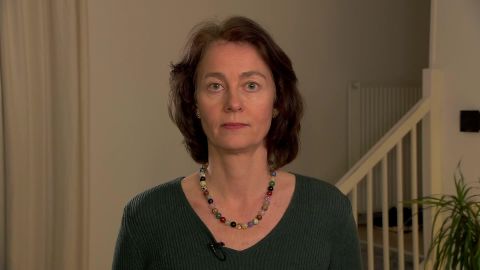Read Transcript EXPAND
CHRISTIANE AMANPOUR: And, you know, we’ve seen this rising far-right-ism. I’ve explained the violence that we’ve seen. We know that anti-Semitism is rising and we’ve seen this attack on what the prosecutors there calle people of a migrant background, many of them are Muslim, as you can tell. And this gunman, you know, seemed to be spouting all sorts of racism and white nationalism. What are the — I guess the conditions on the ground right now politically, culturally that has been allowing this kind of violence, not to mention the AfD far-right party to be rising in Germany?
KATARINA BARLEY, EUROPEAN PARLIAMENT MEMBER, GERMANY: Well, the circumstances, I guess, are the same as in a lot of other countries too. It’s a climate that is being created by political forces, especially, that build on scapegoats, that build on anti-Semitism, on homophobia, on racism. And this man, for example, he was not someone who was known as right-wing extremist. But he obviously picked up all of this ideology, and then decided to execute what others preached. And I think this is something that we see in a lot of countries. And unfortunately, nowadays, also in Germany.
AMANPOUR: Since you were former justice minister there and you had to deal with issues like this in your remit and you were, you know, leader of a major party, the General Secretary, do you feel that this right-wing, white nationalism that we’ve seen rising with some of the violence I have described — and by the way, you know, prosecutors have said and the Domestic Intelligence agency estimated the number of violent crimes with these far-right elements rose by 3 percent in 2018. So, they have been rising. Is this something that you see as an organized issue or is it individuals who grab onto this political strain and act out their racist views? In other words, is it a movement?
BARLEY: Well, I think it’s both. We do see organized structures and we do see a political arm. But we also see people who, as I said, are not in the focus of our national security system and who just pick up the ideology. And we’ve seen that, for example, with Anders Breivik in Norway or in (INAUDIBLE) in other places in the world, and that is what makes it so difficult to combat. Because the structures, you can survey, you can fight against them. But these people who just decide well, I’ve heard enough of all of this, I’m going to now change it myself, these people are far harder to control, of course.
About This Episode EXPAND
Christiane speaks with Foreign German Justice Minister Katarina Barley about the racially-motivated shooting there; and Vanessa Hauc and Van Jones about last night’s Democratic debate. Hari Sreenivasan speaks with journalist McKay Coppins about one of the largest disinformation campaigns ever conducted.
LEARN MORE


